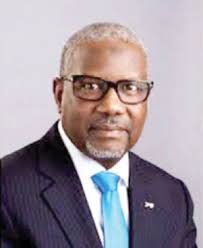The leadership of the Organized Private Sector under the aegis of Organized Private Sector of Nigeria (OPSN) has sought the Presidency’ explanation on the need for electricity tariff increase, particularly now at a time when the nation’s economic performance is receding and millions of poor Nigerians are trapped in poverty cycle.
The OPSN comprises the Nigerian Association of Chambers of Commerce Industry Mines and Agriculture (NACCIMA), the Manufacturers Association of Nigeria (MAN), the Nigeria Employers’ Consultative Association (NECA), the Nigerian Association of Small and Medium Scale Enterprises (NASME), and the Nigerian Association of Small Scale Industrialists (NASSI).
The group stated that the fiscal decision to hike tariff was inappropriate at a time many factories were closing their facilities and the nation’s unemployment rate now at over 27% is becoming increasingly worrisome
It clarified: “We met with the administration through the Special Adviser to the President on Infrastructure for extensive discussions on the increase in electricity tariff which took effect on 1st September, 2020.
“The Special Adviser informed the meeting of the serious financial quagmire in which the Government has found itself which has made it impossible for the Government to continue to sink hundreds of billions of Naira into the Electricity Industry without any positive improvement in the supply of electricity to consumers”, the OPS group added.
According to the body, government justified the latest tariff hike on the fact that over the past five years, subsidy on electricity had shot up from N165 billion in 2015 to over N500 billion in 2019, surpassing the budgetary allocations to health and education combined.
The OPSN further stated that after extensive discussions, the meeting agreed that government should give assurance that the new tariff regime will lead to significant and sustained improvement in the quantity and quality of electricity as well as create conditions that will attract private investments in the sector to justify its cost reflective tariff position.
In addition, the group reported that the meeting also agreed that government should forestall further retrenchment of workers in industrial sector under the prevailing high cost operating environment, by exploring all avenues to support viability of industries while urging the apex bank to review its recent decision on payments of imports and government to reconsider the current policy on border closure.
The OPSN stated its readiness to continue engaging government in discussions through the Presidency, Ministry of Power, NERC and other key agencies with a view to monitoring the implementation of the Service Based Tariff structure and providing electricity to the over 90 million Nigerians currently lacking access to electricity.






